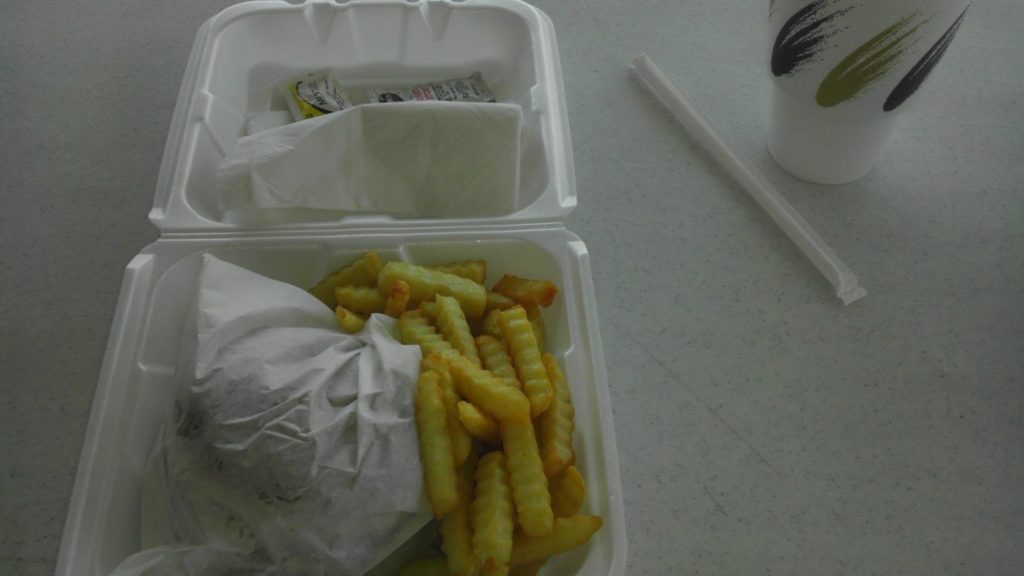 We all know that fast food is bad for us. But do you ever find yourself craving a greasy burger or salty fries? Maybe it’s the taste, maybe it’s convenience, but most of the time if we are honest with ourselves it is because we are really hungry. If this sounds like you then check out these tips to help you stay on track when eating fast food!
We all know that fast food is bad for us. But do you ever find yourself craving a greasy burger or salty fries? Maybe it’s the taste, maybe it’s convenience, but most of the time if we are honest with ourselves it is because we are really hungry. If this sounds like you then check out these tips to help you stay on track when eating fast food!
1) Order water in place of soda
By ordering water with your meal you can save hundreds of calories while staying hydrated. You will also avoid the type of sugar rush followed by a crash that comes from drinking soda. If plain tap water is not for you, perhaps ask for an extra slice of lemon or lime.
Restaurant meals are notoriously loaded with fat, salt, and sugar. And drinking calorie-filled sodas exacerbates the problem. Thankfully, many restaurant chains now offer lower-calorie “light” beverages that may help reduce your daily intake of sugar and sodium if water isn’t your cup of… tea.
2) Opt for more frequent smaller meals
Smaller, more frequent meals have been shown to reduce overall food intake. This is thought to be due to the fact that with small meals, the gut releases hormones at a slower rate. This is what prevents the hunger pangs that normally occur when blood glucose and insulin levels are low. Thus, if you want to lose weight (or even maintain your current weight), one way to help is having 3-4 small meals per day.
3) Eat slower
Food typically leaves the stomach in about two hours. The more quickly it’s consumed, the less time your brain has to register that you’re full before you’ve eaten too much. Also, when you eat fast your stomach doesn’t get the chance to let your brain know that it’s producing more digestive juices. So if you gulp down an entire meal in ten minutes, your food isn’t broken down properly and this could cause indigestion or heartburn. It could also lead to constipation since undigested food passes through the intestines so quickly there isn’t time for sufficient water to be absorbed.
One thing that can help prevent this problem is chewing your food thoroughly. Chewing breaks down the food and increases saliva production in your mouth, which helps start digestion. When you chew well, the food is also mixed with digestive juices in your stomach.
4) Find healthy alternatives
Many fast-food restaurants now offer healthy alternatives, and from grill selections to salads, you can easily transform your meal into a nutritious option.
If you find yourself at a burger joint, try ordering a burger without cheese or mayonnaise and substitute chili for their house spread. If it’s chicken you’re hankering for, go for grilled rather than fried.
The next time you find yourself driving through a fast-food restaurant, remember you can still get in and out without ruining your diet.
